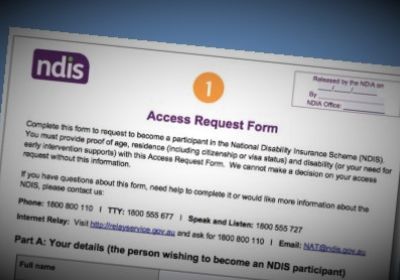
Labor’s threat to slash-and-burn NDIS funding gives the lie to Jim Chalmers’ claim that the budget would offer “more help for some of the most vulnerable in our community”, argues Graham Matthews.

Labor’s threat to slash-and-burn NDIS funding gives the lie to Jim Chalmers’ claim that the budget would offer “more help for some of the most vulnerable in our community”, argues Graham Matthews.

For those of us forced to live with it, Labor’s first budget since 2013 is both a missed opportunity and a threat of worse things to come, argues Graham Matthews.

Senator Jordon Steele-John has accused Labor of failing to draw on the expertise of the lived experience of disability advocates and fears that mistakes will be repeated. Nova Sobieralski and Zoe Wing report.
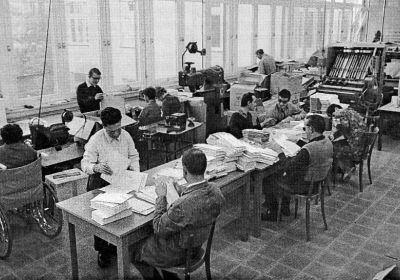
Disabled people can be paid as little as $2.54 per hour. Shaun Bickley urges candidates, companies and others to support equal pay for equal work.
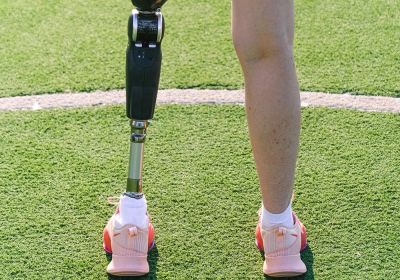
Scott Morrison said he’s “blessed” to have had two children who are not living with disability. Graham Matthews argues that considering the mess he's made of the NDIS, this may just be one of the few honest statements he’s made.
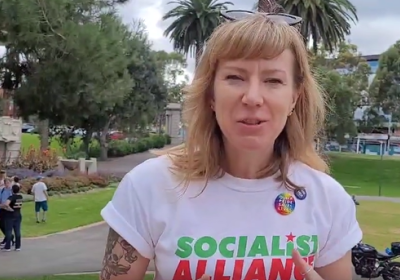
Suzanne James spoke to trade unionist and Socialist Alliance candidate for the Victorian Senate Angela Carr about Australia’s economic and social equity crisis.
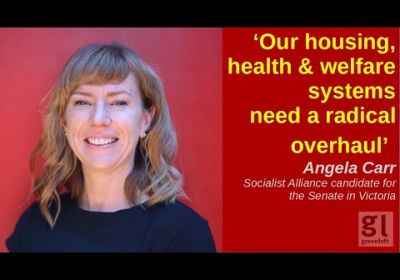
Suzanne James spoke to Angela Carr, Socialist Alliance candidate for the Senate in Victoria, about housing, health, National Disability Insurance Scheme and the party's plans to address the growing socio-economic inequality crisis.
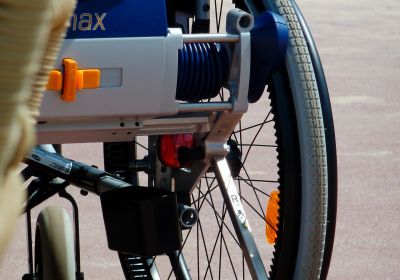
The National Disability Insurance Scheme purports to support a better life for hundreds of thousands of people with disabilities, their families and carers. Graham Matthews, Steve Warren, Terry Townsend and Lisa Macdonald argue for a needs-driven scheme.
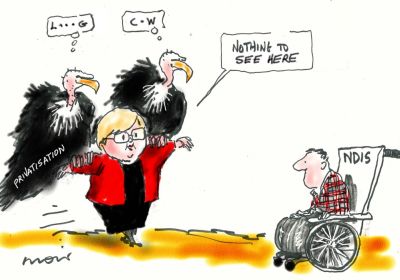
Graham Matthews argues that now that the National Disability Insurance Scheme has matured, the federal government wants to disown it, down-size and destroy it.

Those with a psychosocial disability are being failed by the government’s arbitrary decision-making on who qualifies for vital health and community services under the COVID-19 lockdown, writes Marie Butler-Cole.
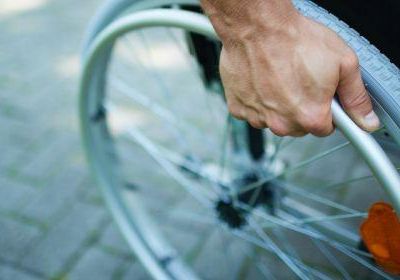
Minister for Families and Social Services Paul Fletcher announced on September 26 that the National Disability Insurance Scheme (NDIS) had reached the milestone of registering its 200,000th participant. That same day, the Sydney Morning Herald reported that the final figures for the 2017-18 federal budget showed the budget deficit had been reduced to $10.1 billion, with "the single biggest saving [being] the lower than expected numbers of participants entering the NDIS.”